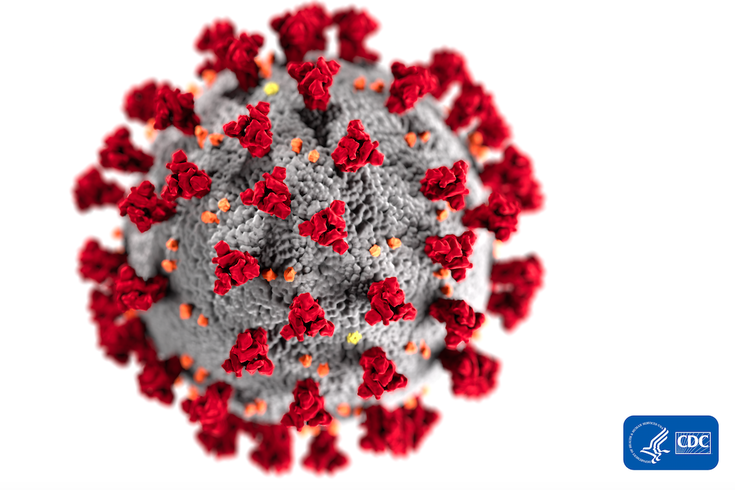
March 11, 2020
 Alissa Eckert and Dan Higgins/CDC
Alissa Eckert and Dan Higgins/CDC
Telemedicine could become an important containment strategy for the coronavirus pandemic, according to Dr. Judd Hollander of Jefferson Health's Emergency Medicine Department. Hollander argues that telehealth coordination will limit the exposure risk for providers, patients and the general public as COVID-19 spreads.
With the World Health Organization officially classifying the coronavirus as a global pandemic, medical professionals are searching for ways to prevent its spread while efficiently providing care to those experiencing symptoms of COVID-19.
One physician at Jefferson’s Emergency Medicine Department is urging the expanded use of telemedicine to coordinate screening and care during the coronavirus outbreak.
Writing for the New England Journal of Medicine, Dr. Judd Hollander proposes that broad networks for telemedical services will limit viral exposure among medical professionals and deliver safer guidance for those showing early respiratory symptoms of COVID-19.
"Reports that as many as 100 health care workers at a single institution have to be quarantined at home because of exposure to COVID-19 have raised concern about workforce capacity," Hollander wrote. "At institutions with (emergency department) tele-intake or direct-to-consumer care, quarantined physicians can cover those services, freeing up other physicians to perform in-person care. Office-based practices can also employ quarantined physicians to care for patients remotely."
By using smartphone cameras or other web-based platforms, patients can interface with medical professionals during a critical stage in their care, arranging next steps and limiting their spread of the virus.
Currently, one roadblock to a wide use of telemedicine for COVID-19 is that there isn't a system in place to escalate patient needs.
"At present, the major barrier to large-scale telemedical screening for SARS-CoV-2, the novel coronavirus causing Covid-19, is coordination of testing," Hollander wrote. "As the availability of testing sites expands, local systems that can test appropriate patients while minimizing exposure — using dedicated office space, tents, or in-car testing — will need to be developed and integrated into telemedicine work flows."
At Jefferson Health, measures have already been implemented to convert established office visits with non-exposed patients to telemedical consultations, thus limiting exposure risk for both the patient and the physician.
The primary challenge to coordinating widespread telemedicine deployment in the U.S. for the coronovirus pandemic is the variability of insurance reimbursement from state to state. Some insurers have begun to modify their policies for COVID-19, but others will need to follow suit as the scope of the problem widens.
"Disasters and pandemics pose unique challenges to health care delivery. Though telehealth will not solve them all, it’s well suited for scenarios in which infrastructure remains intact and clinicians are available to see patients," Hollander concluded. "Payment and regulatory structures, state licensing, credentialing across hospitals, and program implementation all take time to work through, but health systems that have already invested in telemedicine are well positioned to ensure that patients with Covid-19 receive the care they need. In this instance, it may be a virtually perfect solution."